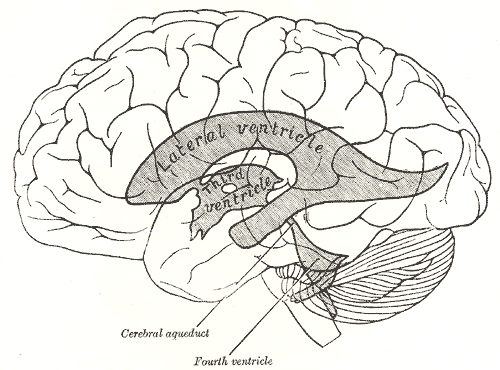Normal Pressure Hydrocephalus (NPH)

Normal pressure hydrocephalus is a rare condition that causes symptoms similar to other neurologic issues, like Alzheimer’s, dementia and Parkinson’s disease. Unlike these conditions, however, normal pressure hydrocephalus is treatable. Henry Ford Health offers the highest level of care and helps more people fully recover.
What is normal pressure hydrocephalus (NPH)?
Chambers (ventricles) in your brain produce and absorb cerebrospinal fluid (CSF), providing a cushion for delicate tissue. With NPH, ventricles become swollen, trapping CSF. CSF buildup leads to difficulty walking, bladder control issues and cognitive changes, like memory issues.
One of the first steps in investigating hydrocephalus is a lumbar puncture to evaluate CSF pressure. With NPH, the results are normal despite the fluid buildup.
Symptoms of NPH
NPH typically occurs in older adults. Some people experience only one of these symptoms, while others have all of them:
- Shuffling when walking or feeling unsteady on your feet
- Difficulty controlling your bladder
- Memory loss
Multidisciplinary normal pressure hydrocephalus treatment: Why choose us?
Henry Ford Health is among the few programs in Michigan using a team approach for evaluating and treating normal pressure hydrocephalus. Because we see many people with NPH, we have a depth of experience that leads to consistently exceptional results. We frequently care for people who previously had unsuccessful treatment.
Our NPH team includes:
- Neurologists specializing in cognitive health
- Neuropsychologists
- Neurosurgeons
- Urologists
- Nurse practitioners
- Nurses
If you are a provider interested in referring a patient to our program, view NPH referring physician resources.
Normal pressure hydrocephalus evaluation
Henry Ford offers all the services you need to accurately diagnose NPH, starting with a thorough assessment.
Pre-appointment information gathering
Our nurse coordinator obtains information about your health history, including:
- Medical records from primary care physicians or neurologists
- Hospital records, including any visits to the emergency room for NPH symptoms
- Recent blood test results
- Reports from brain imaging studies, such as magnetic resonance imaging (MRI)
- List of current medications
NPH assessment
Our comprehensive approach enables you to undergo more of the tests you need in a single visit, including:
- Neurological examination to investigate brain functions such as reflexes, coordination and balance
- Neuropsychology testing to assess cognitive abilities
- Gait analysis to observe foot patterns, including how high you lift your foot and how far it extends when you walk
Multidisciplinary review
Specialists meet within a few days of your appointment to review findings and determine the next steps of your care.
- Probable NPH: We remove a large sample of CSF and observe whether symptoms improve. If they do, you proceed with normal pressure hydrocephalus treatment.
- Not NPH: Symptoms may be due to medication side effects, nerve or spine disorders or sleep apnea. You receive a referral to a Henry Ford specialist for further assessments.
Normal pressure hydrocephalus treatment
People with NPH require a surgical procedure to prevent CSF buildup in the ventricles. You may need:
- Hydrocephalus shunt: Neurosurgeons implant a small hollow tube with a valve (shunt) near the affected ventricle. The shunt drains excess CSF, which travels down additional tubing under the skin and gets absorbed in the body.
- Endoscopic third ventriculostomy (ETV): We create a small opening in one of the affected ventricles to relieve pressure, making it easier to clear CSF. You may need ETV if you cannot have a shunt or if shunting is not successful.
- Contact our NPH Clinic: (248) 325-0019
- Email us: NPHClinic@hfhs.org
- Physicians: View NPH Referring Physician Resources
.svg?iar=0&hash=F6049510E33E4E6D8196C26CCC0A64A4)

/hfh-logo-main--white.svg?iar=0&hash=ED491CBFADFB7670FAE94559C98D7798)